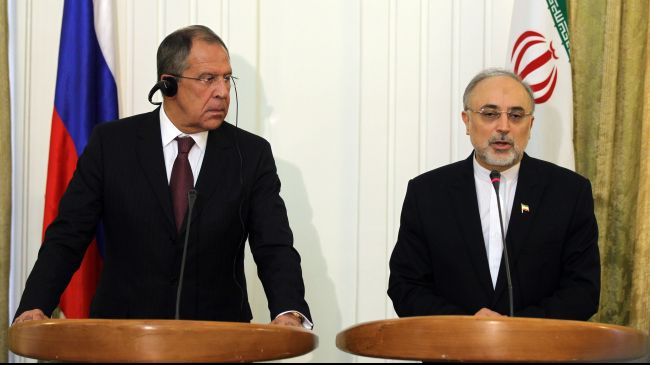Negotiation Silhouettes in the Cold Land

If Western countries were not even prepared to accept the operation of a few centrifuges by Iran for scientific purposes in 2005, today, with Iran’s ability to achieve 20 percent enrichment, they are ready to accept 5 percent enrichment.
The exchange of letters between Jalili's and Ashton’s deputies and negotiations in Vienna quickly convinced Hossein Shariatmadari, the editor in chief of Kayhan newspaper that "the Vienna meeting was like a deep well and the Moscow talks like a pit".
Furthermore, other statements were not different from that of Shariatmadari. Hashemi Rafsanjani, the head of the Expediency Council, said last week that, "comprehensive pressures by the arrogant front do not lead to a win-win situation". Mohsen Rezai, the secretary for the Expediency Council, said, "Some countries want the Moscow negotiations to fail". While predicting the outcome of the Moscow talks, Ayatollah Javadi Amoli also said, "In Baghdad and Turkey, they wasted time and in Moscow they will do the same." These statements, in addition to Jalili's letter to Ashton expressing criticism about not having expert meetings, led to a meeting between Ashton and her colleagues in eastern France where they finalized the negotiation method with Iran and consequently, on June 10, they informed Jalili of it which convinced merchants to lower the prices of gold and the dollar.
Predictions about the Moscow negotiations’ outlook continued inside and outside of the country while Jalili was speaking in St. Petersburg about international security issues. Sanai, a member of the National Security and Foreign Affairs Committee of the Parliament and the president of the Iran-Russia friendship group, talked about a minimal agreement in Moscow, and Mohammad El-Baradei, former Director-General of the IAEA, in an interview with Profil weekly of Austria, predicted that during an election year in the US, there will not be changes in nuclear negotiations.
At a time when Iranians are not optimistic about the Moscow negotiations, Russian Foreign Minister Sergei Lavrov's visit to Tehran is good news for those who are in favor of minimal agreements between Iran and the West. These optimists should also hope that the Americans have the intention to reach an agreement and take a step forward.
Statements made by the Secretary of the National Security Council of our country in the parliament indicated that Iran is determined to have active participation in negotiations. He talked about his conversation with Ashton and at the same time reiterated that Iran has proposed discussion on issues beside the nuclear case. We have proposed the issue of Bahrain and they have proposed the issues of narcotics and pirates. We have said confidence-building steps must be bilateral. The Supreme Leader, as the highest personality of the Islamic Republic, has issued the fatwa against the use of nuclear weapons, and we have asked the West to, in exchange, recognize Iran's right to uranium enrichment and that these two steps be mentioned in the Moscow statement.
Less than 5 days remain till the Iran and P5+1 nuclear talks in Moscow, and rays of hope for success of these negotiations are growing. Will the market show flexibility in the price of gold and foreign currency exchange rate?

